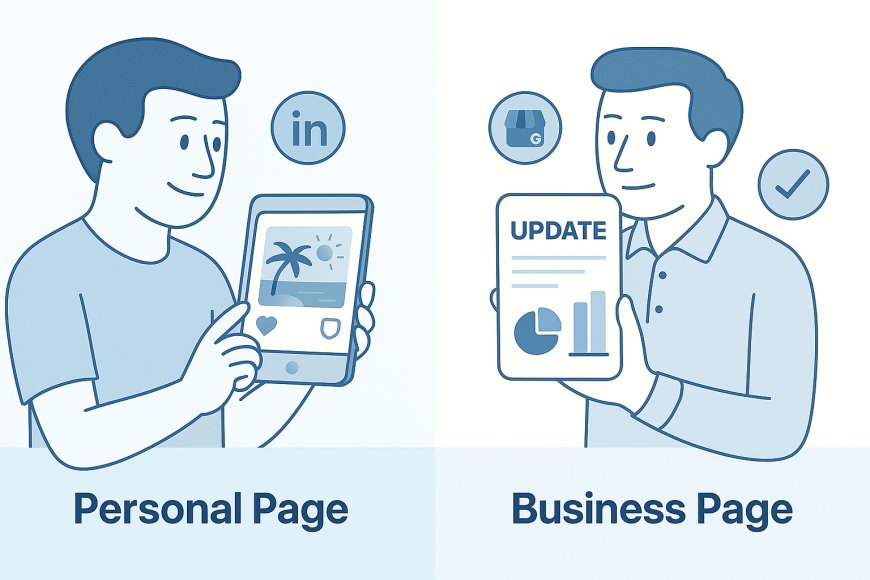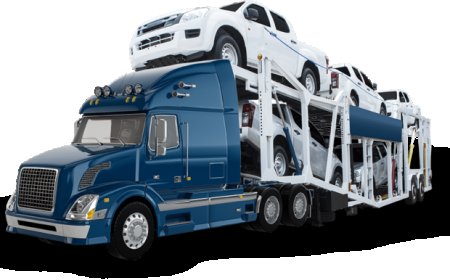Key Differences Between Personal and Business Social Pages
Understand the main differences between personal and business pages and how each serves unique purposes for individuals and companies online.

Introduction
When using online platforms, it's helpful to know the difference between personal and business pages. Whether youre building a brand or staying connected with friends, each page type serves a different purpose. Social Media Marketing for Businesses often starts with choosing the right kind of page.
What Is a Personal Page?
A personal page is designed for individuals. It allows people to share life updates, photos, thoughts, and more. These pages are usually connected to a single persons name and identity. You can send friend requests, like posts, and comment on your friends' updates.
Features of Personal Pages:
-
Designed for individuals
-
Friend-based connections
-
Privacy controls
-
Informal content sharing
A personal page is good if you're using social platforms to talk to friends and family or share your hobbies.
What Is a Business Page?
A business page is built to represent a brand, company, or organization. It provides tools for reaching a wider audience and allows the use of ads and insights to track page performance.
Features of Business Pages:
-
Public visibility
-
Follower-based system (not friend requests)
-
Access to analytics
-
Ability to run promotions or ads
-
Multiple admins can manage the page
A business page is a strong choice if you're offering services, promoting products, or managing a companys reputation.
Purpose and Audience
The main goal of a personal page is to connect with known contacts. The content is often casual, with pictures, status updates, and life moments.
On the other hand, a business page is aimed at a broad audiencecustomers, followers, or potential partners. The tone is more professional, and content usually includes updates, offers, or helpful information about products or services.
Interaction and Engagement
On a personal page, interactions are usually two-way. Friends can freely comment and engage with posts. Conversations often feel personal.
With business pages, interaction is focused on brand engagement. Followers can comment, message the page, or react to content, but theres a clear line between the business and its audience.
Control and Admin Access
Personal pages are usually run by just one personthe profile owner.
Business pages, however, can have multiple admins, editors, and managers. This is useful for companies with social media teams.
Tools and Insights
Personal pages dont have built-in analytics.
Business pages offer tools to measure reach, engagement, and audience behavior. This helps in understanding what type of content works best and when to post for better visibility.
Search and Discoverability
Business pages can appear in search engine results and be found by people searching for related topics. Their content is often public and helps with brand visibility.
Personal pages, on the other hand, are usually not visible to people who are not connected. Privacy settings are more limited on business pages for a reasonthey are meant to be seen.
Content Strategy
What you post depends on your page type.
On a personal page, people post:
-
Vacation pictures
-
Family moments
-
Thoughts and opinions
On a business page, youll usually find:
-
Product updates
-
Company news
-
Educational or promotional content
-
Customer support information
Can You Switch Between the Two?
While you can't turn a personal page into a business page directly, most platforms let you create a business page from your personal account. The two stay separate, but you can manage them from the same login.
Why the Right Page Type Matters
Choosing the right page type helps you reach your goal. If you're running a business or trying to grow a brand, a business page gives you tools and structure to do that. If you're just sharing parts of your daily life, then a personal page is more suitable.
Using the wrong page can lead to confusion. For example, using a personal page for a business can limit growth and may even go against some platform policies.
Final Thoughts
Understanding the difference between these two page types is the first step toward using platforms wisely. If youre building a presence for your service or company, make sure youre set up for success by using the tools built for businesses. It also helps avoid future issues as your audience grows.
For those looking to build a strong online profile, using free profile creation sites can also help boost your visibility outside social media platforms.









































